Search Results
12 results found for ""

Dive into the power of Python's itertools module to transform your code from cluttered loops to elegant, readable iterator-based solutions. This comprehensive guide explores key functions like combinations, permutations, and groupby, complete with practical examples that boost efficiency and maintainability. Whether you're an intermediate Python developer looking to streamline data processing or optimize combinatorial tasks, you'll gain actionable insights to elevate your programming skills.

Learn how to build robust, efficient, and secure Python Docker containers for real-world applications. This guide walks intermediate developers through core concepts, practical examples (including multiprocessing, reactive patterns, and running Django Channels), and production-ready best practices for containerized Python apps.
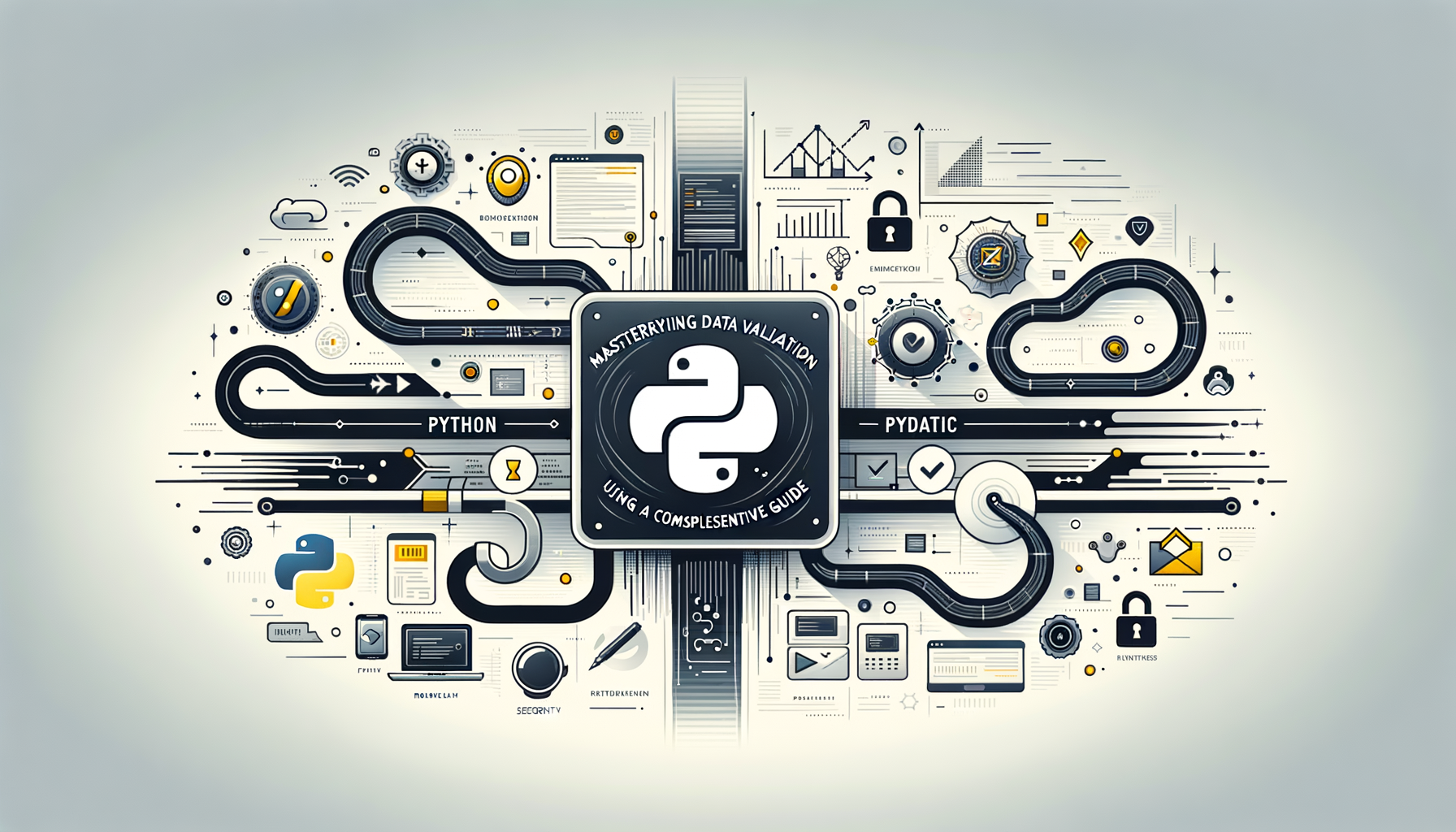
Dive into the world of robust data validation with Pydantic, the powerful Python library that's revolutionizing how developers ensure data integrity in web applications. This guide walks you through practical implementations, from basic model definitions to advanced validation techniques, complete with real-world code examples and best practices. Whether you're building APIs with FastAPI or enhancing Flask apps, you'll learn to catch errors early, boost security, and streamline your development process—empowering you to create more reliable and maintainable Python web projects.

Learn how to supercharge Python functions using the functools module — from caching expensive calls with lru_cache to composing small functions into performant pipelines. This practical guide covers real-world examples, dataclass integration, testing strategies with pytest, and considerations for multiprocessing and production readiness.

Dive into the power of Python's built-in functools module to supercharge your function handling and boost code efficiency. This comprehensive guide explores key tools like caching, partial functions, and decorators, complete with practical examples for intermediate Python developers. Unlock advanced techniques to manage functions effectively, integrate with related modules like multiprocessing and itertools, and elevate your programming skills for real-world applications.
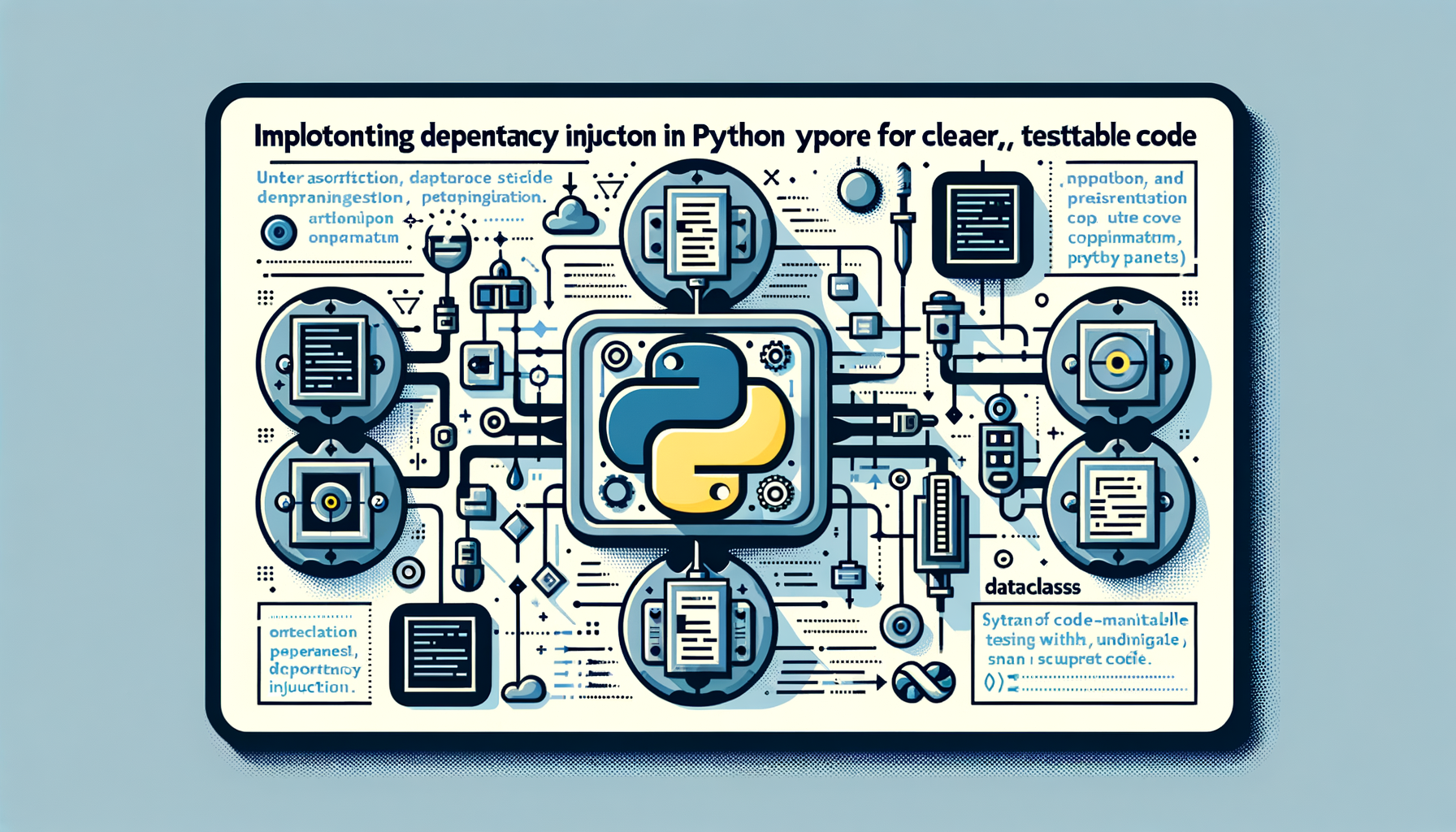
Learn how to use **dependency injection (DI)** in Python to write cleaner, more maintainable, and highly testable code. This practical guide breaks DI down into core concepts, concrete patterns, and complete code examples — including how DI improves unit testing with **Pytest**, leverages **dataclasses**, and fits into a packaged Python project ready for distribution.
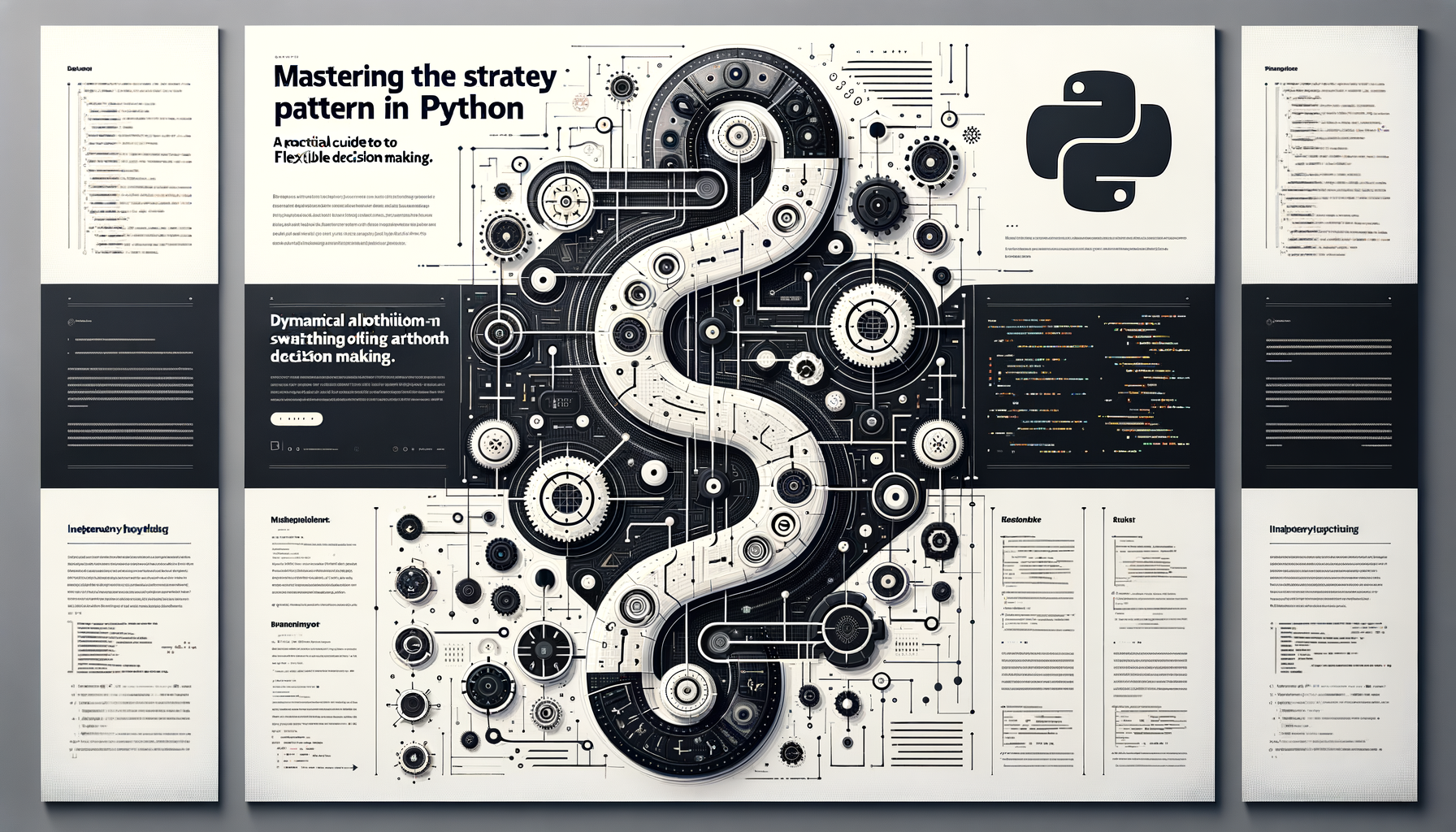
Dive into the Strategy Pattern, a powerful behavioral design pattern that allows your Python applications to dynamically switch algorithms or behaviors at runtime, making your code more flexible and maintainable. This comprehensive guide walks intermediate Python developers through core concepts, real-world examples, and best practices, complete with working code snippets to implement decision-making logic effortlessly. Whether you're building data processing pipelines or interactive tools, you'll learn how to apply this pattern to enhance modularity and scalability in your projects.

Discover how Python's **f-strings** can dramatically simplify and speed up string formatting in real-world projects. This guide covers fundamentals, advanced patterns, performance tips, and integrations with tools like Flask/Jinja2, multiprocessing, and Cython for high-performance scenarios.
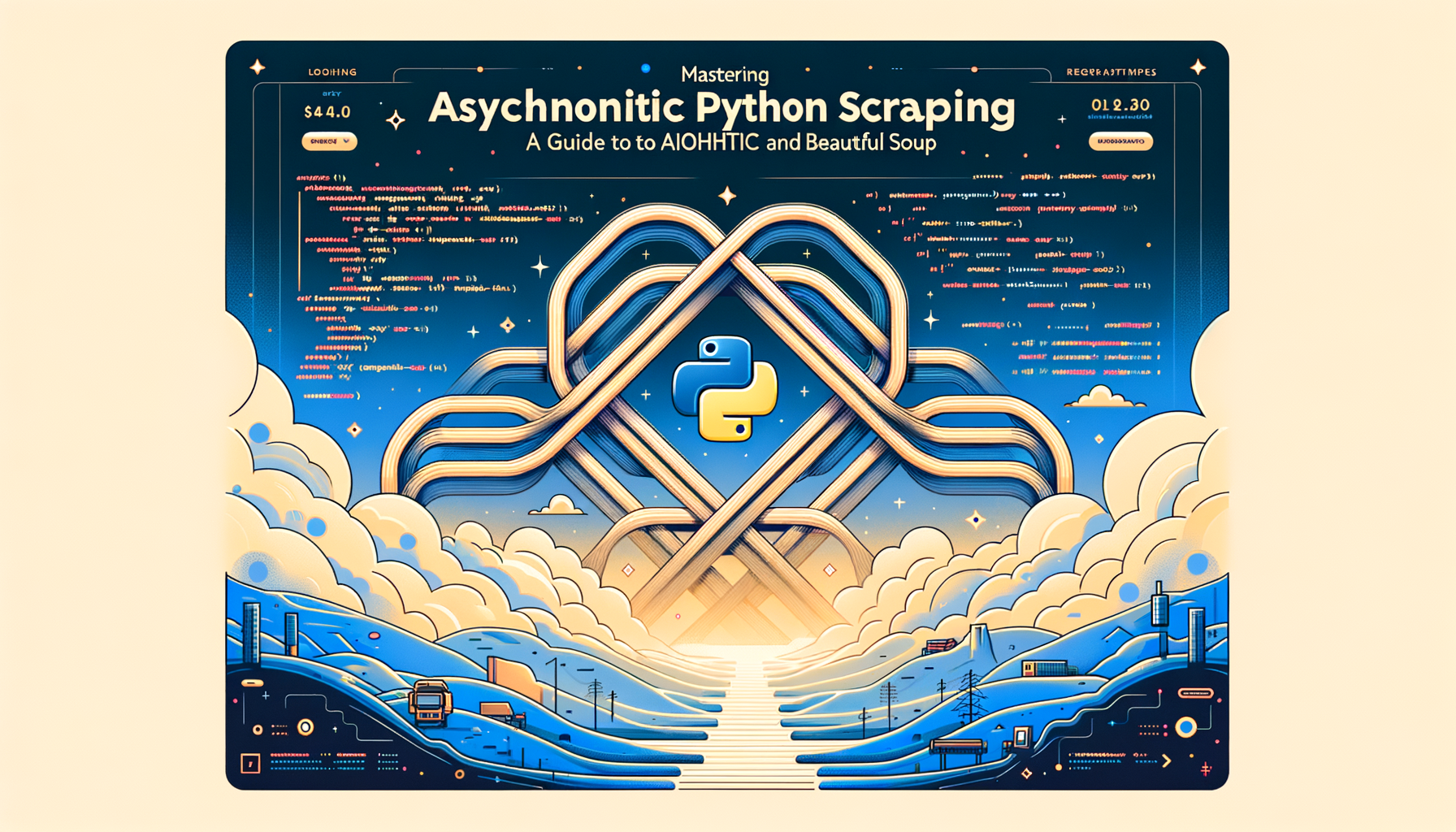
Dive into the world of efficient web scraping with Python's asynchronous capabilities using aiohttp and Beautiful Soup. This comprehensive guide will teach you how to build fast, non-blocking scrapers that handle multiple requests concurrently, perfect for intermediate learners looking to level up their data extraction skills. Discover practical examples, best practices, and tips to avoid common pitfalls, all while boosting your Python prowess for real-world applications.
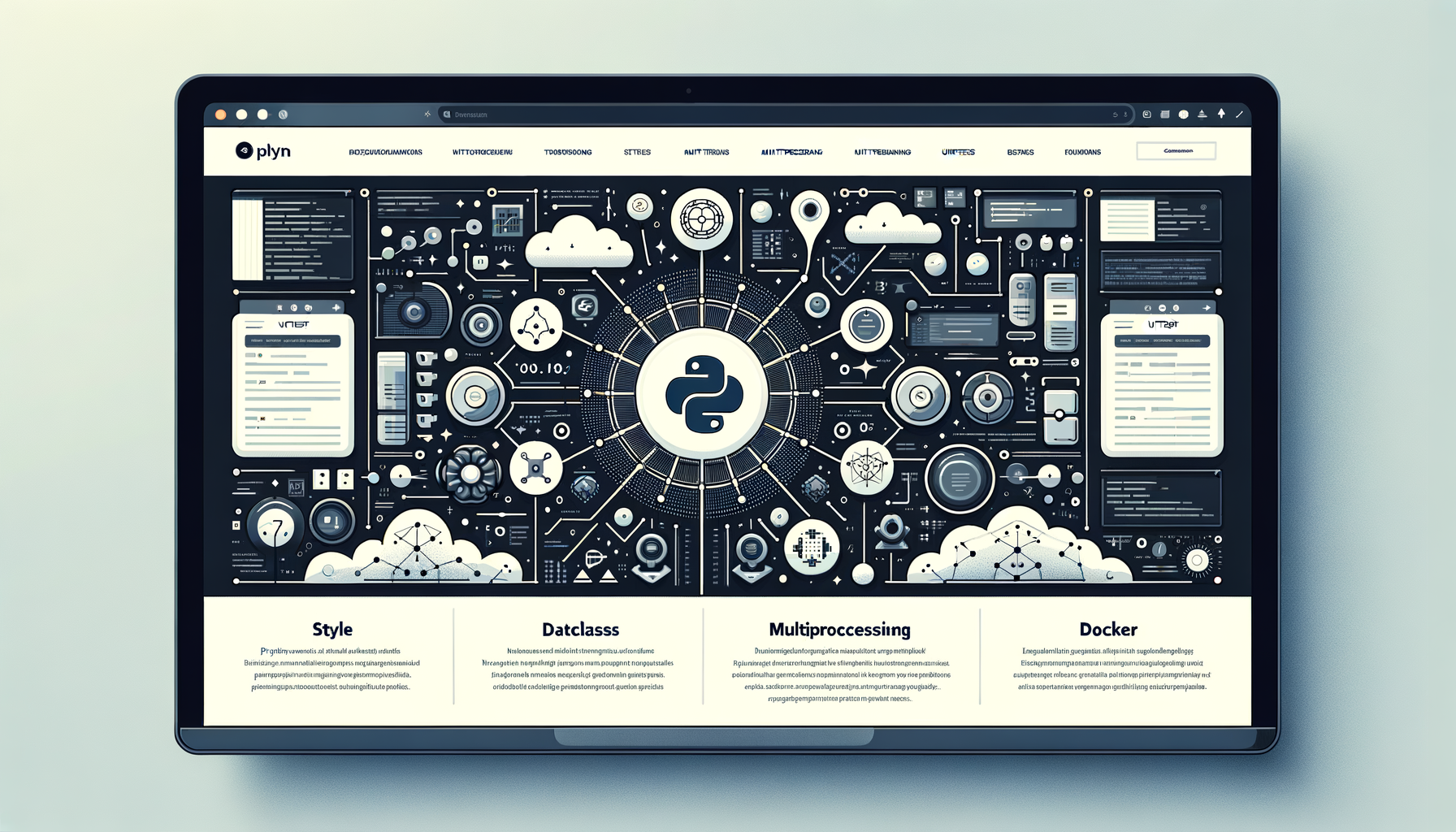
Discover how to write reliable, maintainable unit tests using Python's built-in unittest framework. This guide walks through core concepts, practical examples (including dataclasses and multiprocessing), Docker-based test runs, and actionable best practices to improve test quality and developer productivity.

Unlock the power of modular, testable Python code with dependency injection (DI), a design pattern that enhances flexibility and maintainability in your applications. In this comprehensive guide, we'll explore DI patterns, their benefits, and step-by-step examples to help intermediate Python developers build robust systems. Whether you're decoupling services in web apps or streamlining testing, mastering DI will elevate your programming skills and prepare you for real-world scenarios like containerized deployments.

Pattern matching via Python's **match** statement unlocks clearer, more maintainable control flow—especially in complex applications that handle diverse message types, AST nodes, or task dispatch logic. This post demystifies structural pattern matching with practical examples, ties it to building custom data structures (like a linked list), shows how to integrate Test-Driven Development (TDD), and explains how to use match in multiprocessing worker dispatch. Try the examples and see how match reduces conditional complexity.